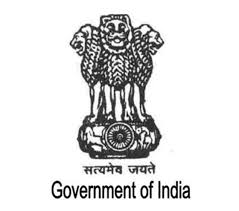The Indus Valley civilization, one of the world's oldest, flourished during the 3rd and 2nd millennia B.C. and extended into northwestern India. Aryan tribes from the northwest infiltrated the Indian subcontinent about 1500 B.C.; their merger with the earlier Dravidian inhabitants created the classical Indian culture. The Maurya Empire of the 4th and 3rd centuries B.C. - which reached its zenith under ASHOKA - united much of South Asia. The Golden Age ushered in by the Gupta dynasty (4th to 6th centuries A.D.) saw a flowering of Indian science, art, and culture. Islam spread across the subcontinent over a period of 700 years. In the 10th and 11th centuries, Turks and Afghans invaded India and established the Delhi Sultanate. In the early 16th century, the Emperor BABUR established the Mughal Dynasty, which ruled India for more than three centuries. European explorers began establishing footholds in India during the 16th century.
By the 19th century, Great Britain had become the dominant political power on the subcontinent. The British Indian Army played a vital role in both World Wars. Years of nonviolent resistance to British rule, led by Mohandas GANDHI and Jawaharlal NEHRU, eventually resulted in Indian independence, which was granted in 1947. Large-scale communal violence took place before and after the subcontinent partition into two separate states - India and Pakistan. The neighboring nations have fought three wars since independence, the last of which was in 1971 and resulted in East Pakistan becoming the separate nation of Bangladesh. India's nuclear weapons tests in 1998 emboldened Pakistan to conduct its own tests that same year. In November 2008, terrorists originating from Pakistan conducted a series of coordinated attacks in Mumbai, India's financial capital. Despite pressing problems such as significant overpopulation, environmental degradation, extensive poverty, and widespread corruption, economic growth following the launch of economic reforms in 1991 and a massive youthful population are driving India's emergence as a regional and global power.
India is a federal parliamentary republic.
Source: CIA World Factbook
Members:
Resources
Displaying 46 - 50 of 91Comparative Statement of National Policy for Resettlement & Rehabilitation of Project Affected Families (NPRR‐2003) & National Rehabilitation Policy (NRP‐2006)
This document from Department of land Resources, Government of India presents a comparative Statement of National Policy for Resettlement & Rehabilitation of Project Affected Families (NPRR‐2003) & National Rehabilitation Policy (NRP‐2006)
STATE OF ENVIRONMENT REPORT MANIPUR
State of Environment Report Manipur is prepared by Environmental Information System(ENVIS) Manipur.
This report presents Manipurs environment portfolio relating to policy planning, conservation, regulation, co-ordination and promotion of environment related issues along with its meaningful application in various developmental programmes to achieve the socio economic objectives of the State.
The Hindu Succession (Amendment) Act, 2005
This Hindu Succession Act Amendment made in 2005 was to grant, among others, rights to women to inherit agricultural land of the parents and husband. Under this amendment the daughters, including married daughters, are coparceners in joint family property, with the same birth right as sons, to share, claim partition, and (by presumption) to become karta (managers), while also sharing the liabilities. This would be applicable for Hindus, Sikhs, Buddhists and Jains religious communities of India.
The Special Economic Zones Act, 2005
A special economic zone (SEZ) is an area in which business and trade laws are different from rest of the country. SEZs are located within a country's national borders, and their aims include: increased trade, increased investment, job creation and effective administration. To encourage businesses to set up in the zone, financial policies are introduced.
Impact Assessment Study of Socio-Economic Development Programmes – A case Study of Himachal Pradesh
Impact Assessment Study of Socio-Economic Development Programmes in Himachal Pradesh, sponsored by the Planning Commission, Government of India has been conducted by Asia pacific Socio-Economic Research Institute, New Delhi from December 1999 to February 2000.


